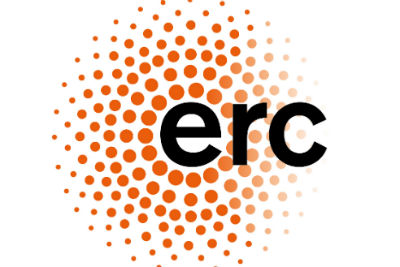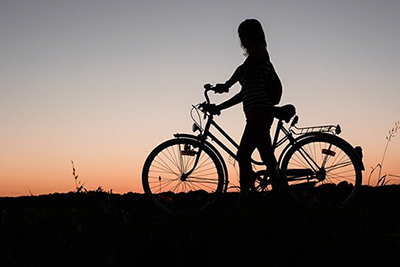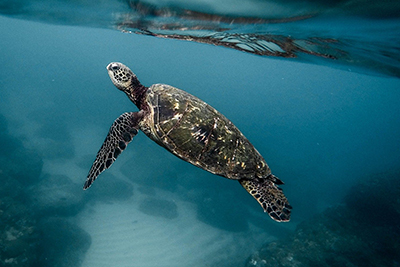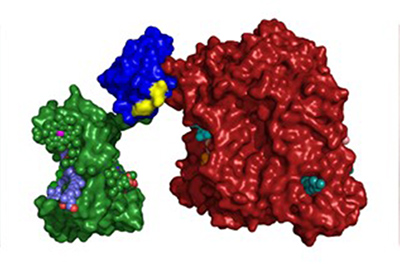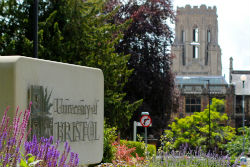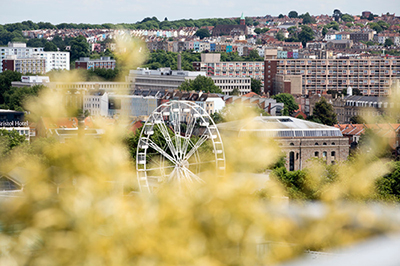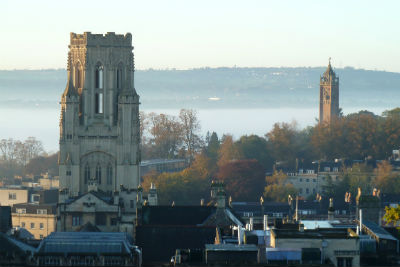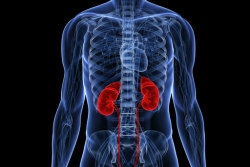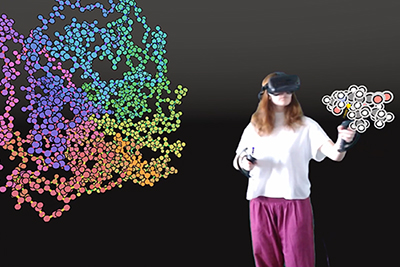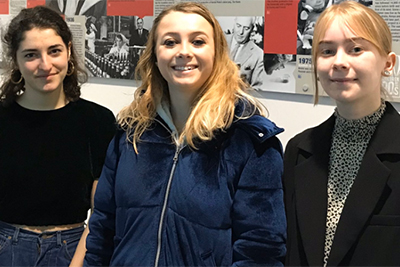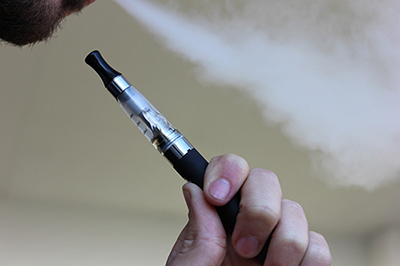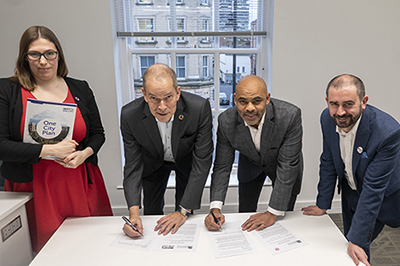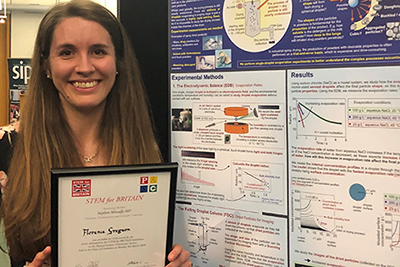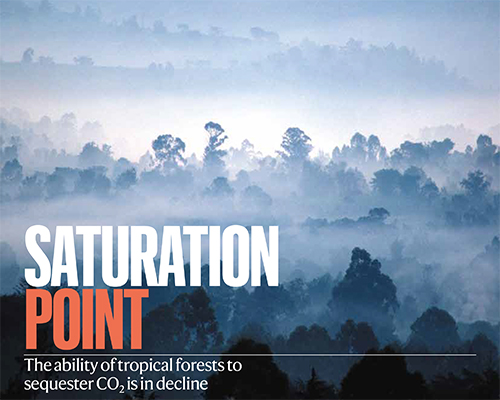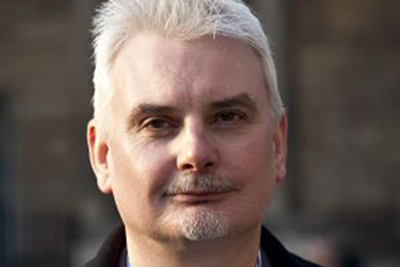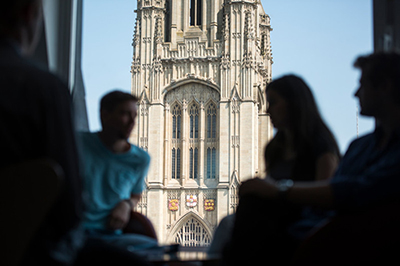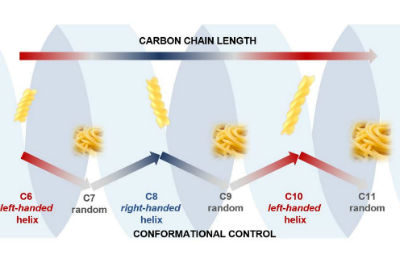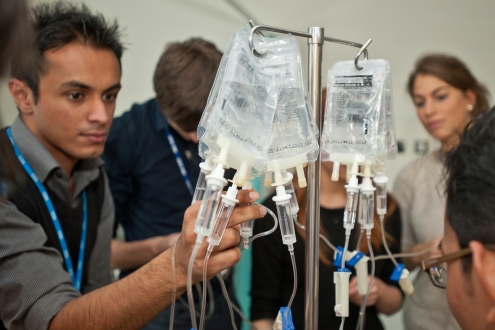£5 million boost to Bristol research projects from European Research Council
Two projects led by scientists from the University of Bristol have received grants totalling more than £5 million from the European Research Council (ERC).
Two projects led by scientists from the University of Bristol have received grants totalling more than £5 million from the European Research Council (ERC).
More than 220 final year medical students from the University of Bristol will qualify early this week to enable them to work as doctors in the NHS during the COVID-19 crisis.
As the nation grapples with public lockdown, the reality of all living under the same roof has taken on a whole new meaning. Cohabiting families, couples, and housemates across the country will be seeing rather more of each other for the foreseeable future, putting those relationships under unprecedented pressure.
With the coronavirus pandemic leading to people across the nation being confined to their homes, experts at the University of Bristol have created some guidance to keep people active.
A global analysis of over 300 marine species spanning more than 100 years, shows that mammals, plankton, fish, plants and seabirds have been changing in abundance as our climate warms.
A team of scientists, led by the University of Bristol, has developed a new photosynthetic protein system enabling an enhanced and more sustainable approach to solar-powered technological devices.
Given the unhelpful surge of conspiracy theories circulating regarding Covid-19, a new ‘Conspiracy Theory Handbook’ is published this week. The book summarises the scientific research into conspiracy theories: why people believe them, the traits of conspiratorial thinking, and how to counter them.
In the midst of the COVID-19 outbreak, the health and wellbeing of our students and colleagues is our top priority.
If your wine rack looks empty, the biscuit barrel bare, you’re binge-watching way too much TV, and you’re dying for a cigarette, chances are you’re not alone.
An international team of scientists, led by the University of Bristol, has found that current estimates of flood risk rely upon methods for calculating flood damage which are inadequately verified and match poorly with observations.
News coverage of television presenter Caroline Flack’s recent death by suicide raises public health concerns about media reporting of suicide. A new study which analysed the findings of 31 studies investigating associations between media reporting of deaths by suicide and population suicide rates, including those of celebrities, showed suicide rates increased by 13 per cent on average over the 28 days following media reports of a celebrity death by suicide.
Mayoral governance in Bristol has boosted the visibility of city leadership and helped promote Bristol on the national and international stage, a new study has found.
In the midst of the COVID-19 outbreak, the health and wellbeing of our students and colleagues is our top priority.
A new UK-wide clinical trial is looking to recruit around 500 patients aged over 65-years with low kidney function and other health problems to better understand the pros and cons of different options should their kidneys fail. The study is announced today on World Kidney Day.
Bristol City Council and the University of Bristol have confirmed that a student at the University of Bristol has been tested positively for COVID-19, after returning to Bristol from abroad.
Researchers at the University of Bristol are pioneering the use of virtual reality (VR) as a tool to design the next generation of drug treatments.
The Vice Chancellor’s Fellow at the School of Chemistry of the University of Bristol, has won an EPSRC New Investigator Award worth £392,000.
Last month, BME pupils from City Academy in Bristol got their first taste of Science, Technology, Engineering and Maths (STEM) thanks to black students and professionals from the Schools of Biochemistry, Chemistry, Mathematics and CAME Engineering.
Today [11 March 2020], three undergraduate students from the University of Bristol will take part in a national event celebrating the best undergraduate research in the country.
Young people who have tried e-cigarettes but have never smoked before are nearly five times more likely to go on to try smoking, a new study has found. However, the findings do not provide clear support for the claim that e-cigarettes cause young people to start smoking (the so-called possible "gateway effect").
Turquoise jade vine flowers have appeared for the first time in the tropical glasshouse at the University of Bristol Botanic Garden.
There has been a dramatic increase in the incidence of bowel cancer in adults under the age of 50, according to new research from the University of Bristol, UWE Bristol and University Hospitals Bristol NHS Foundation Trust (UH Bristol).
A new agreement between Bristol City Council, the University of Bristol and the City Office has been agreed that will see closer working between the organisations in developing a city of hope and ambition.
Pupils' genetic data do not predict their educational outcomes with sufficient accuracy and shouldn’t be used to design a genetically personalised curriculum or tailor teaching, according to a new University of Bristol study. The findings, which compared the genetic scores of 3,500 pupils with their exam results, are published in the journal eLife today [10 March].
Nine University of Bristol students presented their research in the Houses of Parliament on 9 March 2020 as part of a national competition which celebrates early stage or early career researchers.
The ability of the world’s tropical forests to remove carbon from the atmosphere is decreasing, according to a study tracking 300,000 trees over 30 years, published today in Nature.
Stephen Hilton, founder and director of Bristol Futures Global, has become Bristol Digital Futures Institute’s first fellow.
The University of Bristol plays a key role in tackling environmental change through its research, its teaching and how it operates.
Researchers at the University of Bristol have come up with a new type of nanoelectromechanical relay to enable reliable, high-temperature, non-volatile memory.
A new league table has placed many of the University of Bristol’s courses among the best in the world.
Helical shapes are very familiar in the natural world and, at the molecular level, of DNA, the very blueprint of life itself.
Bristol Medical School has announced it is the first UK medical school to adopt a new BMA racial harassment charter which aims to address the barriers faced by Black, Asian or other minority ethnic (BAME) students.
